
One of our main priorities is to ensure universal access to, and informed use of effective contraception. Millions of people lack the knowledge and information to determine when or whether they have children, and they are unable to protect themselves against sexually transmitted infections (STIs).
Articles by Contraception
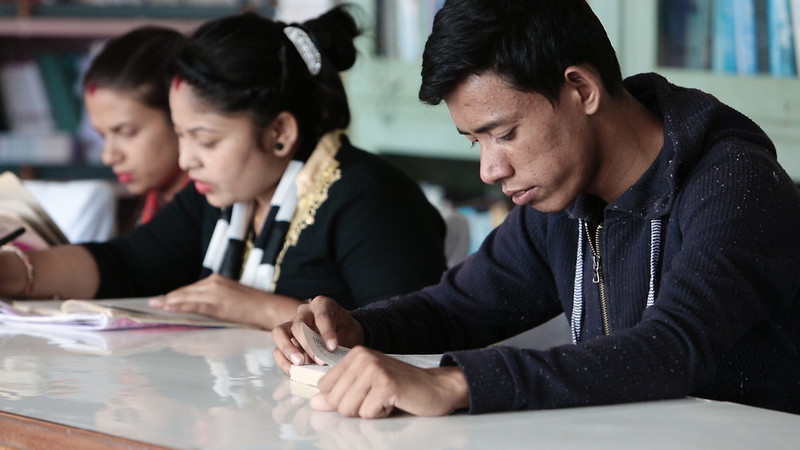
Launch of first global sexual and reproductive health service package for men and adolescent boys
Growing a moustache during the month of November has become common in many countries to raise awareness of men's health issues. Along with ‘Movember’, World Vasectomy Day (17 November) and International Men’s Day (19 November) are other awareness days in November linked to promoting men’s health, including sexual and reproductive health. Existing gender inequalities, due in large part to rigid gender norms and harmful perceptions of what it means to be a man, have far reaching consequences on health and wellbeing. Better meeting the specific and diverse needs of men and adolescent boys, as well as improving men’s own sexual and reproductive health, also improves the sexual and reproductive health of their partners, and is an effective way to promote sexual and reproductive health and rights for all. Now, for the first time ever, the International Planned Parenthood Federation (IPPF) and United Nations Population Fund (UNFPA) have released a comprehensive service package focused on men’s sexual and reproductive health. The Global Sexual and Reproductive Health Service Package for Men and Adolescent Boys has been developed to support providers of sexual and reproductive health services. Men have substantial sexual and reproductive health needs, including the need for contraception, prevention and treatment of HIV and other sexually transmitted infections, sexual dysfunction, infertility and male cancers. Yet these needs are often unfulfilled due to a combination of factors, including a lack of service availability, poor health-seeking behaviour among men, health facilities often not considered ‘male-friendly’, and a lack of agreed standards for delivering clinical and preventative services to men and adolescent boys in all their diversity. IPPF is committed to working with men and adolescent boys in all their diversity as clients, partners and agents of change. This commitment is framed within a human rights framework and outlined in IPPF policies on Men and Sexual and Reproductive Health and Gender Equality. These reflect the importance IPPF attaches to addressing men’s sexual and reproductive health and rights and promoting an approach that is truly gender transformative. Working together as a global Federation, IPPF is committed to: Continuing to provide technical support on mobilizing men and adolescent boys to transform harmful gender norms; Advocating for an enabling policy environment that ensures men’s and adolescent boys’ access to services and reduces sexual and gender based violence; Contributing to the evidence base about what works in gender transformative programming; and • Meeting the diverse sexual and reproductive health needs, including HIV, of tens of millions of men and adolescent boys in over 150 countries. I am Amina. Professional writer, coach, and writing in the niches of healthcare, beauty, relationships and education since 2009. Follow me at HomeworkHelpmate.
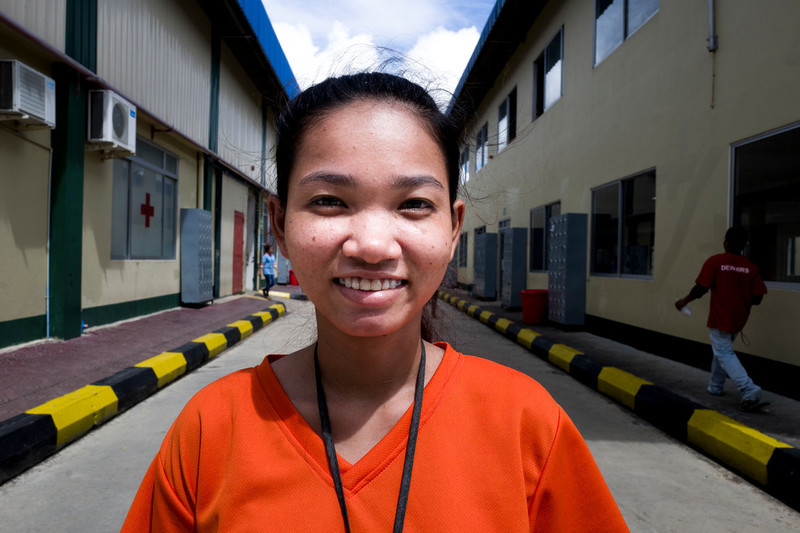
Health with pop: Talking sex education with Cambodia’s female garment workers
About 700,000 people work in Cambodia’s garment factories, many of them migrant women from rural areas who typically possess low levels of education. According to Dr. Sreng, not only do these women often lack crucial health knowledge, but they tend not to trust health providers or know where to access medical care. RHAC, which first took its health outreach programme into garment factories in 1998, now operates in 82 factories that employ a combined total of 130,429 workers. Nearly 28,000 of them have taken part in RHAC-led group discussions and more than 67,000 have attended targeted health days like the one at Propitious. Photography © IPPF/Omar Havana
Take the contraceptive challenge
#block-ippf-breadcrumbs{ background-color:#000000; } #block-ippf-page-title { background-color:#000000; } #block-ippf-page-title { background-color:#000000; } section { background-color:#000000; } #block-mainpagecontent { background-color:#000000; } #region region-content{ background-color:#000000; } contextual-region block block-simple-share { background-color:#000000; } .contextual-region block block-simple-share { background-color:#000000; } #contextual-region block block-simple-share { background:black; } #block-simpleshare { background:black; } #page title { background-color:#000000; } .h1 { font-family: 'Press Start 2P', cursive; text-align:center; } Select your character Helene Sara Jamila Learn more about contraception var $iframe = $('iframe'), $videoLink = $('.video-link'), playerTemplate = '×'; $videoLink.on('click', function(e) { var localTemplate = '', videoWidth = parseInt($(this).data('width')), videoHeight = parseInt($(this).data('height')), videoAspect = ( videoHeight / videoWidth ) * 80, // elements $player = null, $video = null, $close = null, $iframe = null; e.preventDefault(); localTemplate = playerTemplate.replace('{{iframevideo}}', $(this).prop('href')); $player = $(localTemplate); $player .find('.video-filler') .css('padding-top', videoAspect + '%'); $close = $player .find('.video-close') .on('click', function() { $(this).off().closest('.player').hide().remove(); }); $player.appendTo('body').addClass('js--show-video'); });

The Contraceptive challenge III: the displaced woman
For displaced women, access to unbiased information and services is a real challenge. IPPF member associations reach women in humanitarian settings to ensure that they have the information and care they need to freely decide abut their health.
The contraceptive challenge II: The Young Girl
Access to contraception should never be a challenge, yet young people face stigma and barriers when they try to access to contraceptive care and information. At IPPF, we know that the lack of sexual and reproductive health care is not a game. We work with and for young people to ensure them the healthcare and education they need, so they can focus on a more important challenge: achieving their dreams.
The contraceptive challenge I: Rural Women
Access to contraceptive care can be difficult in some societies and trying to get the support needed can feel like a challenge. Yet, IPPF member associations know that the lack of family planning is not a game and are always on hand to provide contraceptive services and care to those that are most in need. Join our campaign for everyone's right to decide
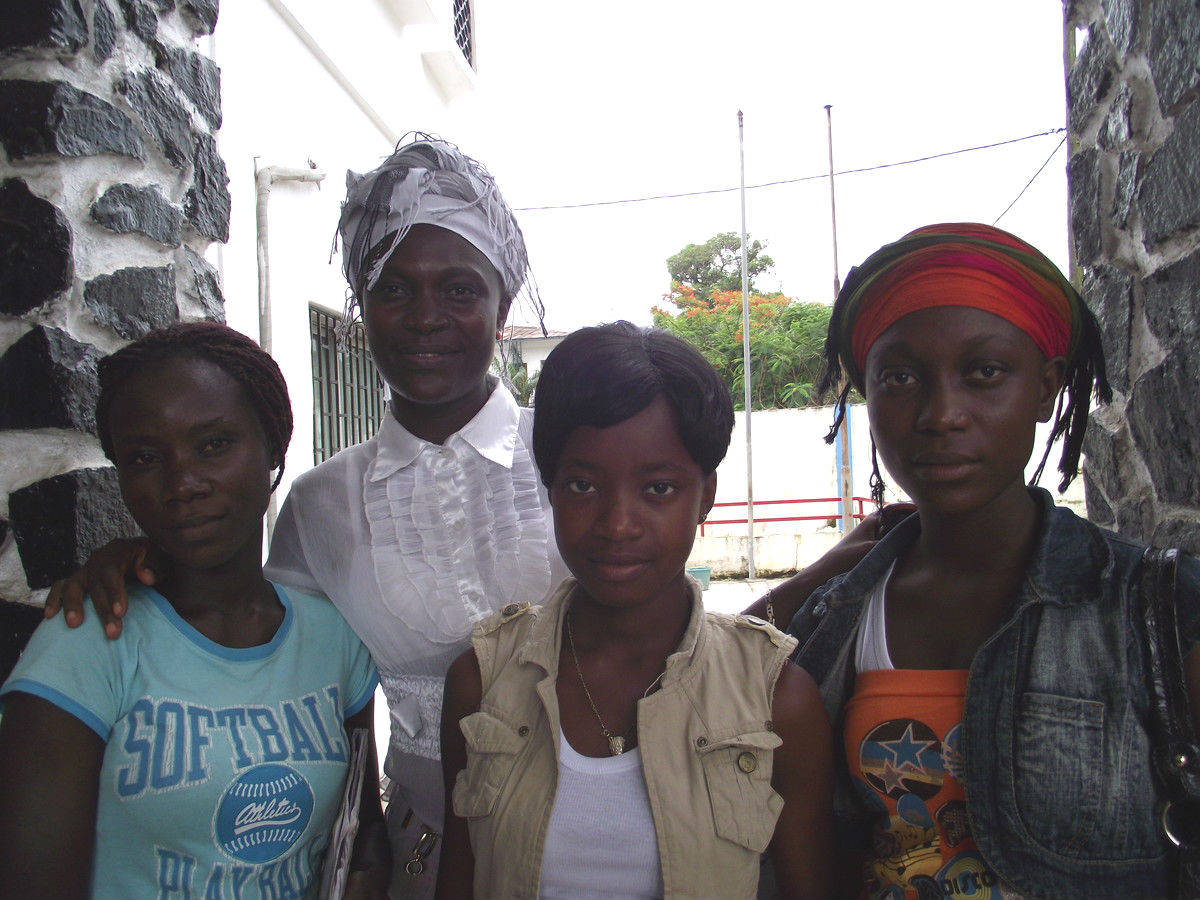
Four highlights from the 2017 London Family Planning Summit
The 2017 London Family Planning Summit held earlier this month has been celebrated as a success in renewing commitments for family planning. An impressive US$2.5 billion in funding commitments by new and old partners alike to ensure 120 million more women and girls have access to contraception. The Summit built a sense of hope and optimism for the family planning sector – a sector very much under threat in recent years and especially since the reinstatement and expansion of the Global Gag Rule. And five years on from the 2012 Summit, the landscape looks very different – the universality of the Sustainable Development Goals (SDGs), greater political and financial commitment to family planning. Yet, we are also amid a rapidly changing aid environment – a contraceptive funding crisis, decreasing and diversifying official development assistance and reinstatement and decreasing funding for family planning. The real work starts now. Civil society organizations like IPPF and our partners are renewing our efforts to work in partnership to ensure the commitments are translated into reality. The progress towards 2020 must address specific challenges including stockouts of contraceptives in many countries, wider contraceptive choice, and protection and promotion of women and girls’ rights. But for now, let’s take stock of the four main highlights from the 2017 London Summit: Broader partnership: The meeting brought renewed momentum to the family planning movement, with a broader partnership joining the cause. Funding commitments were made from partners new and old. 13 new commitments from were made private sector companies, four times higher than in the 2012 Summit. Engagement with the private sector and with sectors beyond health, like the environmental protection sector, envision a path toward stronger, interlinked development agendas. New funding commitments were also made by Norway, Denmark, Australia, Belgium and the Netherlands. Pledges were also specifically made to UNFPA and She Decides. New collaborations are specifically important in the face of the loss of the largest bilateral donor of family planning – USAID. Interlinkages between climate and family planning: With an interlinked global agenda set forth in the Sustainable Development Goals, there is a need to address the interlinkages across sectors. This was perfectly illustrated by the commitment of IPPF’s partner Blue Ventures to address interlinkages between health and environment. Through focusing on the needs of communities, Blue Ventures is expanding cross-sector partnerships between health and environment organizations in seven FP2020 target countries. Together, IPPF, Blue Ventures and a number of other partners have been working for a number of years with Population Sustainable Development Alliance (PSDA) to highlight the interlinkages between environment, climate change and sexual and reproductive health and rights. Today more than ever before we need to join forces to tackle the challenges of climate change, while respecting communities’ need for sexual and reproductive health services and information. A focus on those left-behind: While the world is facing huge population shifts, the Summit emphasized the need to address the family planning needs of adolescents, displaced people and people living in humanitarian settings. There was a clear focus to reach women and girls left behind by traditional family planning programmes. Commitments from Belgium, Canada, Iceland, the International Rescue Commission (IRC), and Médecins du Monde (MdM) among others specifically highlighted FP in humanitarian contexts. Young people participated meaningfully on multiple platforms. IPPF launched the landmark report ‘Under-served and Over-looked’ to shine a light on the blind spot of family planning progress, and focus on the women and girls left behind. The report underscores the inequalities for poor women and girls in their inability to access full, free and informed choice. The report suggests programmatic and policy solutions to reach poor and marginalized women and girls towards greater contraceptive equity. Country ownership: As the world is tumbling towards a contraceptive crisis, more leadership is needed from partner countries to invest domestic resources in the health and wellbeing of their citizens. The meeting saw notable partner commitments from FP2020 focus countries, as well as first-time commitments from Chad, Haiti, and South Sudan. Greater national ownership of family planning programmes is crucial to the sustainability and progress of these programmes. With modern contraceptive prevalence rates as low as 5% in Chad and South Sudan, the recognition of the importance of family planning and women’s health will be transformative for their development. A number of Ministers of Finance attended, demonstrating a greater appreciation of the economic arguments for investing in family planning as a best buy intervention. Accountability Towards 2020, we must ensure that bold commitments made in 2017 in London translate into reality. These commitments and shifts in conversation are significant roadmaps, but reaching these goals requires a concerted effort from all stakeholders at every level. Greater accountability is needed not only to ensure political and financial commitments are fulfilled, but we also women and girls are able to access the information and services they want and need. Civil society has an important role to play to ensure citizen engagement within accountability. FP2020 will introduce a civil society focal point to its structure (along with donor focal point and government focal point), a reinforcement of the idea that none of the FP2020 goals can be achieved in silos. For a sector reeling from growing political conservatism, the London Summit together with important initiatives of the She Decides movement has built a new sense of momentum, and renewed hope that the ambitious goals of FP2020 and the SDGs may one day be a reality. Together – through an expanded partnership – the sector must persevere towards universal access to family planning services and supplies. Yet we cannot forget the importance of women and girls whose lives depend on access to sexual and reproductive health services and supplies. We cannot forget them, and cannot afford to leave them behind. Join our campaign: support universal access to contraception Watch all videos related to the 2017 Family Planning Summit This blog was written by Elisa Magalhaes, Paige Rogers and Erica Belanger, IPPF Advocacy Team
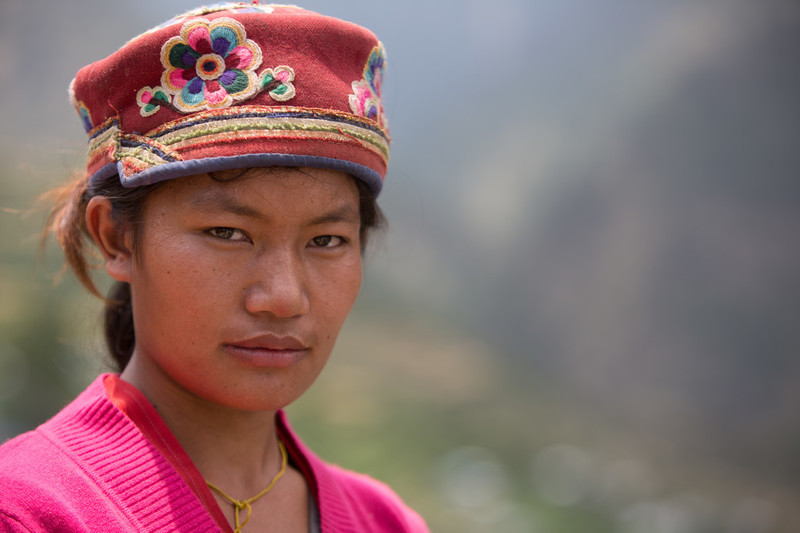
Reproductive health for Nepalese female farmers after the earthquake
Two years after the earthquake that struck Nepal in April 2015, the village of Gatlang in the country’s mountainous north still lies in partial ruin. The houses here are built from enormous slabs of local stone, carved windows and doors, and roofs of stacked wooden planks. They face east towards the rising sun, their facades bedecked in intricate wooden carvings patterns linked to the ancient Buddhist culture of the Tamang people. Today, most of these houses lie in ruin, emptying the heart of the village of people, with most moving to temporary shacks on Gatlang’s fringes. Kopila Tamang is a 24-year-old farmer and mother to two young boys. Her husband, Nakul, works as a lorry driver and is often away. “When the earthquake struck, I was working in the fields,” she says. “If I had been at home, I would have died.” Kopila’s house – or what remains of it – lies at the centre of old Gatlang, on a street of traditional houses that have either entirely collapsed or are uninhabitable due to cracks and structural damage. Piles of stone and wooden cross beams are strewn in what was once a thriving village street. Like many families here, Kopila and her husband and boys have moved into a small shack built from corrugated iron and plastic. This was meant to be a temporary solution, but two years later, they are still living in it, unable to afford the enormous cost of rebuilding their old home. “It needs lots of money,” she says. “I don’t know when we will have the money to build this home again.” FPAN provided emergency health support to families like Kopila’s in the weeks and months after the earthquake. Mobile health camps offered medicines, health check ups, dignity kits, family planning, antenatal checks and other vital services. These days, Kopila gets regular advice from Pasang Tamang, the FPAN reproductive health female volunteer in the village. Kopila had suffered after the birth of her last child. “I didn’t menstruate for eight months, and then after that I started using the [contraceptive] injection,” she says. “But there were some side effects: I started menstruating twice a month.” She then went to a mobile health camp run by FPAN and started using the intrauterine coil. “After that, my menstruation went back to normal,” she says. In a village scarred by the earthquake, access to family planning has brought some much needed stability and relief to Kopila and her small family. “FPAN provide different services and knowledge: I have come to know that having more children can bring suffering, because it’s not enough to just feed children, they must be educated too” she says. “A small family is a happy family.”

2017 London Family Planning Summit
To reinforce the commitments made during the 2012 Family Planning summit, donors, governments and civil society gathered at the 2017 London Family Planning Summit, organised by the UK Department for International Development and the Bill and Melinda Gates Foundation.
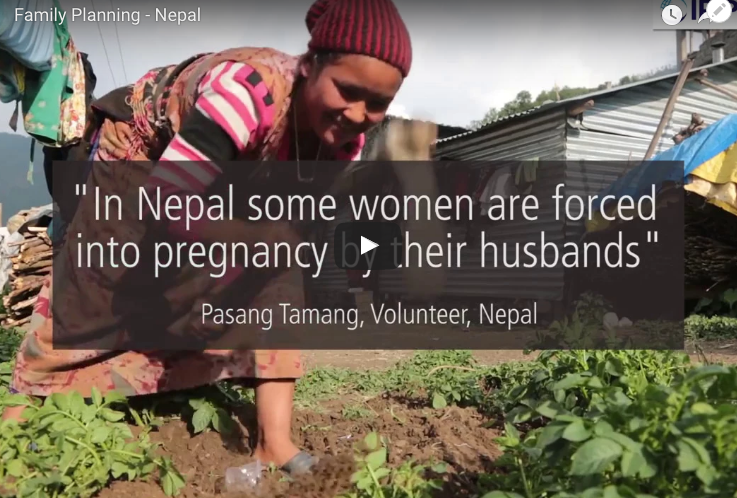
Family Planning in Nepal
For people across Nepal, access to contraception and family planning services can mean the difference between life and death. Yet in this largely patriarchal culture, where having four or five children has long been the norm, contraception remains an alien idea to many, and access to it is strictly controlled by male heads of households. IPPF Family Planning Association of Nepal is working with local community to increase awareness and access to family planning among rural communities and people affected by the 2015 earthquake. See how they're ensuring access and changing lives
Pagination
- Previous page
- Page 8
- Next page







